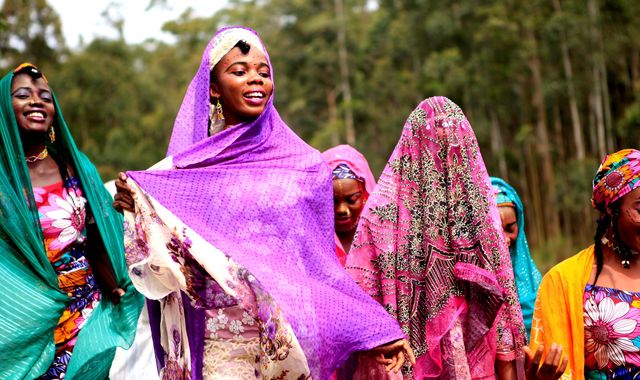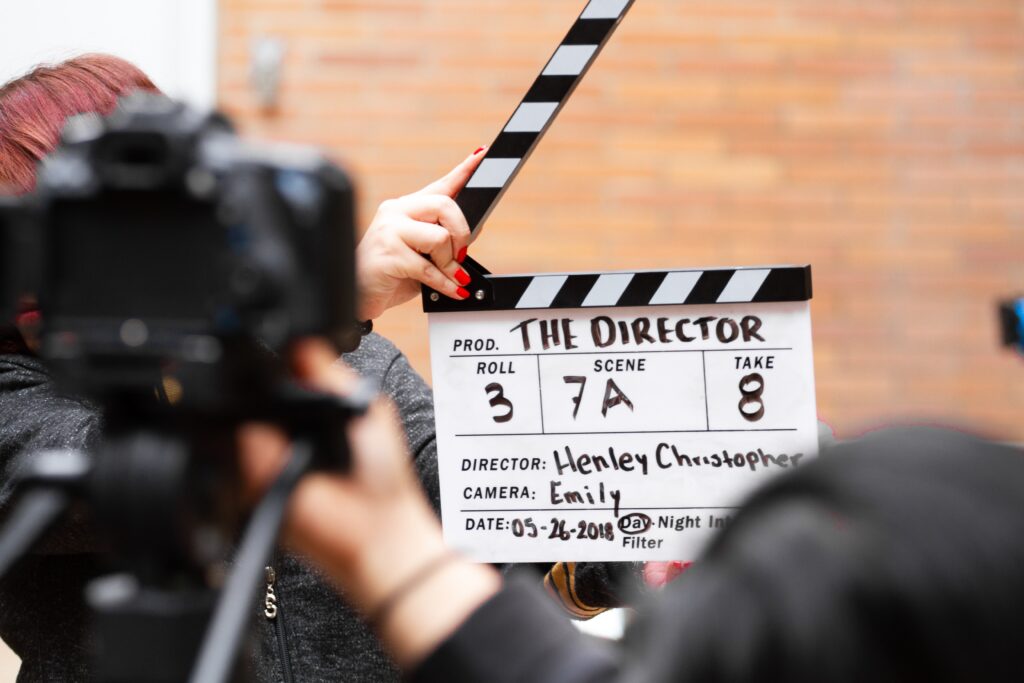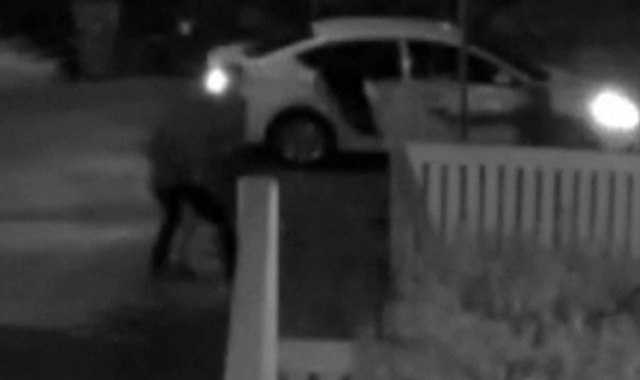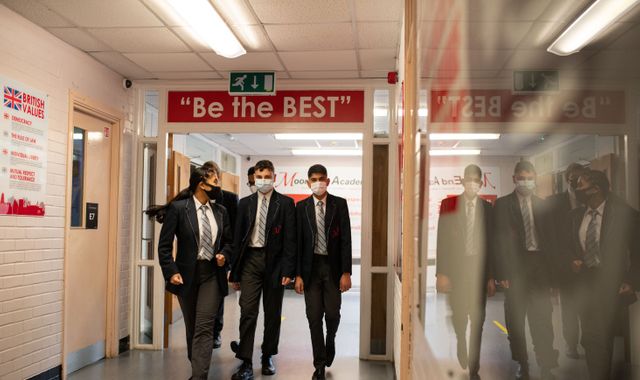Detained and beaten: Why crew risked their lives to make film about insurgency victims in Nigeria
Written by News on 21/02/2021
In the opening minutes of The Milkmaid, the joyous occasion of a wedding in a west African village turns into something unimaginable as terrorists attack.

People try to flee, some are shot down, some slaughtered with machetes; a baby stares out over a mother’s lifeless body.
This film is the story of the women who escape these attacks with their lives, but pay the price. Taken from their homes, their loved ones, they face beatings, rapes, death, even indoctrination into a life of extremism themselves.
While The Milkmaid’s central characters, sisters Aisha (Anthonieta Kalunta) and Zainab (Maryam Booth), are fictional, their stories are all too real.
Since the uprising of the Boko Haram militant group began in northern Nigeria in 2009, more than 30,000 people have been killed and about two million forced to flee their homes.
In December, the jihadist group purported to be behind the kidnapping of 300 young boys in an armed attack on a school. The boys’ relatively quick release, while undoubtedly still a terrifying ordeal, was a marked difference and a much happier ending to those of other similar attacks, most notably that on the 270 schoolgirls taken from the town of Chibok in 2014.
Despite the global #BringBackOurGirls campaign, in almost seven years only about half of those captured have been released or managed to escape; dozens have appeared in propaganda videos by the militants – either pleading for their rescue or pledging allegiance to the group – and some have died from illness, in childbirth or military air strikes, according to captives who have been freed.
While the death and abduction tolls make headlines, very often the humans at the heart of the statistics do not – which is why director Desmond Ovbiagele says he wanted to make The Milkmaid, a story putting people ahead of “the steady drone” of casualty figures.
“Right now, there are millions situated in internally displaced people’s camps, dotted around the country, and very little help, very little respite [is] being provided to them,” Ovbiagele tells Sky News.
“What we tend to hear about, particularly in Nigeria, [we’re] almost desensitised by, on a daily basis, the casualty figures of 15, 20, 50 people who have been killed, but not really having any back story. Certainly their names are seldom ever published, photographs or anything like that.”
He continues: “There [is] no sense of who these people were, how they felt, where they were coming from, what their dreams and aspirations were.”
Nigeria has a prolific film industry, known as Nollywood, producing hundreds of movies and TV episodes every month. But Ovbiagele says many use the same tired tropes we see in Hollywood’s often stereotypical depiction of African countries, “they’re comedy or [about] the juju [magical powers] or that sort of material”. He says he was keen to tell a story with a social conscience.
The Milkmaid has won five Africa Movie Academy Awards, including best film and best supporting actress for Booth, who plays Zainab. It was also chosen as Nigeria’s official submission for best international feature film at this year’s Oscars, although disappointingly for Ovbiagele did not make it to the final 15 shortlisted.
It was not an easy story to tell. The filmmaker faced some resistance to shooting in the northeast of the country, “the actual theatre of conflict”, but says for him it was never not an option to film in the south. It needed to be authentic, he says, even though the location made production not just logistically challenging, but dangerous.
While travelling to film in Taraba State, members of the crew, who were carrying prop guns, costumes and other equipment, were stopped at a checkpoint and detained, beaten and threatened with burning by local police and civilians who believed them to be insurgents.
Their arrival had coincided with an attack just a few days earlier, and residents were taking no chances. It took a week to free them, says Ovbiagele.
“The word spread like wildfire that these young men who are with these props and costumes were, in fact, the insurgents who had attacked their village,” he says. “And immediately, jungle justice was about to be meted out to the young men. They had started to put old tyres around their necks to start burning them, literally.”
The film was also partially censored in Nigeria, with producers being forced to cut some scenes before it could be released.
Despite the difficulties getting it over the line, Ovbiagele says he was determined to show the human cost of the religious extremism sweeping across Nigeria and increasingly other African countries. This is not a film featuring Hollywood caricatures of good and evil, he says, but a complex story of indoctrination and brainwashing.
“That was a product of the research [for the film], which is the ‘baddies’ at some point of their lives were ‘goodies’,” he says. “I don’t think any of them was born an insurgent. I think along the way they crossed the line…
“Another important thing that came out of research [for the film], which is these people, they didn’t necessarily seem to want a master-servant relationship… they wanted the people they had captured to like them, which I thought was interesting because you’d have thought these people wanted these very, very authoritarian relationships.
Subscribe to the Backstage podcast on Apple Podcasts, Google Podcasts, Spotify, Spreaker
“Of course, that was part of the experience of the victims, these very autocratic relationships. But for some of them, they wanted a bit more than that.”
Ovbiagele is hoping The Milkmaid will help encourage people to think more deeply about the rise of religious extremism in Africa. Following the success of the Oscar-winning South Korean film Parasite in 2020, and Mexican film Roma in 2019, the West seems to slowly be overcoming the “one-inch barrier” of subtitles, as Parasite director Bong Joon Ho called them.
Those films have “opened the door, to a certain extent”, says Ovbiagele, and hopefully mean more people around the world will take notice.
“I want viewers to take perhaps a deeper insight and appreciation for what the victims of insurgency go through, not just in Nigeria, but increasingly, unfortunately, in other parts of Africa,” he says. “It’s increasingly a phenomenon in Chad, in Niger, in Cameroon, you have Burkina Faso, you have Mali, and even Mozambique and Congo these days.
“The idea is to help the world understand how these things take place, what their motivations are, so that hopefully these situations can be addressed. I think the first step is understanding who these people are, their culture, what facilitates people actually crossing over into extremism. I’m hoping the film can contribute to that understanding.”
(c) Sky News 2021: Detained and beaten: Why crew risked their lives to make film about insurgency victims in Nigeria






